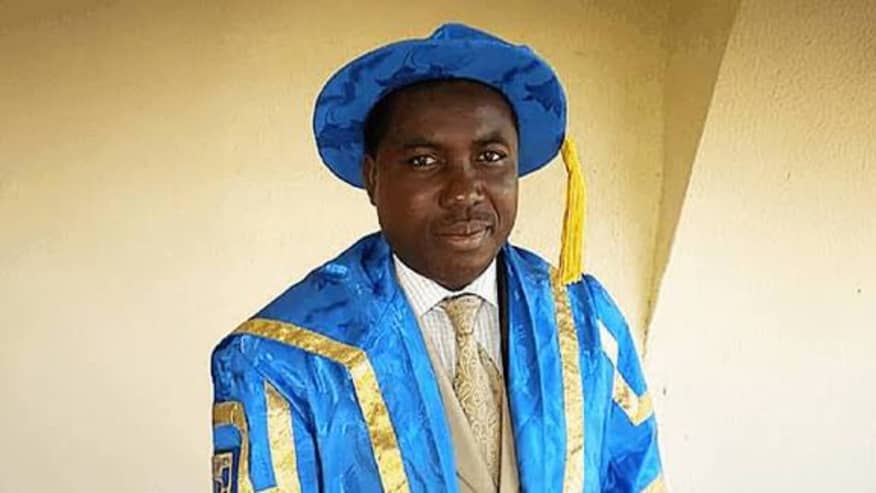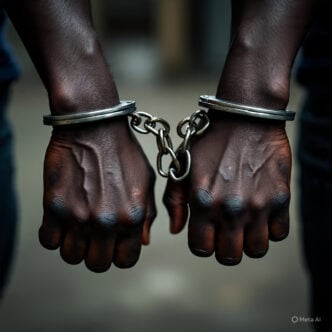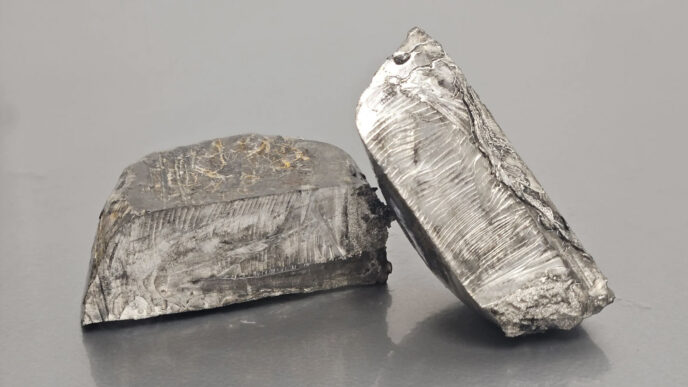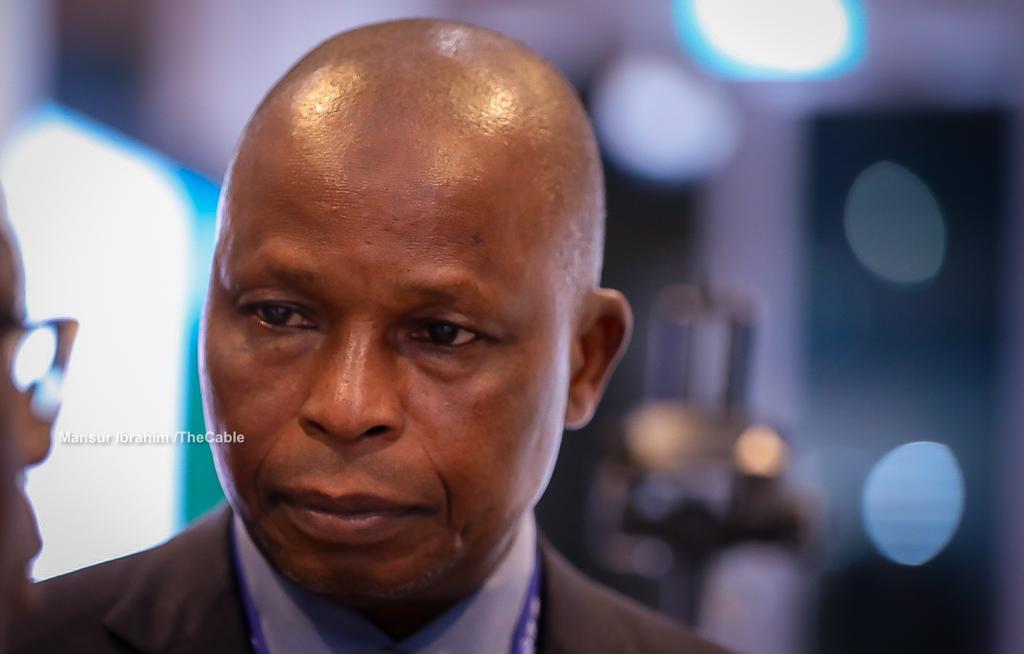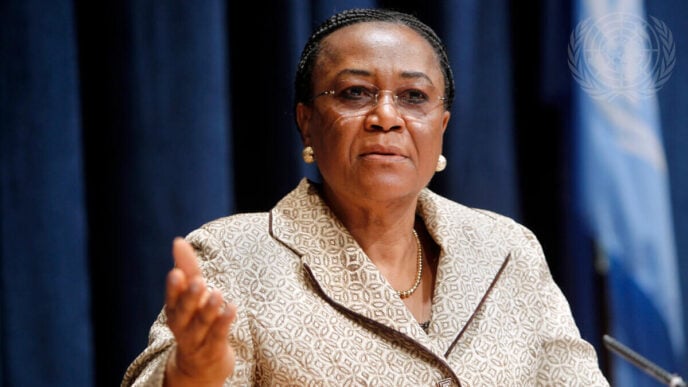BY OLUFEMI ADUWO
In our Yoruba moral tradition, when an elder repeats a name thrice, it is not for emphasis but for warning. It is the voice of conscience summoning the listener to reflection. The name Amupitan means ‘he who tells the story’, the custodian of memory, the narrator of truth and the guardian of legacy. It is both a title and a burden. Thus, when one bears that name, one carries an inescapable duty to ensure that the story he tells and the story told about him will be worthy of remembrance.
Every name, the elders say, is a prophecy. The child of words cannot live without their weight. To bear the name (Joash) Amupitan and preside over the destiny of a nation’s democracy as chairman of the Independent National Electoral Commission is to walk daily in the shadow of history. The task is not ordinary. It is neither a political appointment nor a bureaucratic service. It is a covenant between truth and power, and whoever sits in that chair must remember that Nigeria’s destiny, for good or ill, may rest upon the integrity of their decisions. Your name, Amupitan, must be your compass. When the tempters come, those who call at midnight, those who cloak bribery in patriotism, those who speak of ‘national interest’ but mean personal ambition, let your name rise before you like an ancestral warning. Let it whisper, “Do not stain the story you are meant to tell.”
Every election is a story written in millions of fragments, the ink of ballots, the sweat of presiding officers and the courage of voters who queue under the sun. Yet, in the end, it is the chairman who becomes the storyteller. He alone must interpret the chaos, defend the process and stand before a sceptical nation to declare what truth the figures have revealed.
Advertisement
If he falters, the story collapses; if he bends the tale to please power, history brands him a liar. Nigeria has known too many liars in and out of INEC. We have endured decades of electoral deceit, of stolen mandates, of hope turned to bitterness. Each generation of leaders has promised reform, and each generation of citizens has been betrayed anew. Must we continue thus, Amupitan? The moral of every Yoruba folktale is that deceit never triumphs forever. The tortoise may cheat his way through the feast, but in the end, his shell cracks under the weight of his cunning.
To chair INEC is to sit upon a volcano of interests. Every politician wants you to be impartial, in his or her favour. Every region demands fairness that benefits them. The ruling party sees you as a custodian of continuity, the opposition sees you as the key to redemption. When you refuse to play along, they call you arrogant. When you speak the truth, they accuse you of bias. When you remain silent, they invent your words. But you, Amupitan, must not yield. For the honour of your name, you must remember that neutrality is not weakness and silence is not consent. Your task is not to please but to preserve. The moment you sacrifice integrity for convenience, you trade your story for infamy. Those who whisper comfort today will denounce you tomorrow.
Our elders say the path of public service is lined with banana peels, the slippery temptations that bring even the righteous to disgrace. They come as gifts, as favours, as ‘support for logistics’.They come wrapped in envelopes, disguised as thanksgiving or embedded in contracts. Do not tread carelessly, Amupitan. Many before you have slipped, and their names are now bywords for failure. They were people of intellect and reputation, yet they fell, not because they lacked knowledge, but because they forgot who they were. When power blinds a person to principle, they begin to justify corruption as a necessity and compromise as wisdom. That is how decay begins: quietly, gradually and fatally. Let your name be your warning bell. Let Amupitan remind you that the story of corruption is never told by the corrupt; it is told by those who survived their betrayal. Amupitan, history has a long memory.
Advertisement
Every election year, the stage is set for a familiar drama: accusations, counter-accusations, conspiracy theories, doctored videos and endless court petitions. Each actor plays his part, yet the audience never leaves satisfied. You, the INEC Chairman, stand at the centre of this theatre. They will hurl stones of propaganda at you, twist your words and interpret every silence as scandal. But remember, you are not in the play to act; you are there to ensure that the performance remains within the bounds of the script, which is the Constitution. The manipulators will test your resolve. Some will seek to compromise the Commission’s members of staff; others will exploit ethnic sentiment, religious fear or political pressure. In those moments, remember that neutrality requires not only courage but also foresight. Your decisions will not only shape elections; they will define the public’s faith in democracy. To lose that faith is to lose the nation itself.
It is fashionable to claim that corruption in Nigeria is inevitable, as if integrity were an endangered species. But corruption endures not because it is invincible, but because too many good people have chosen silence over confrontation. You must not be one of them, Amupitan. Do not allow the myth of helplessness to seduce you. Institutions rot only when those entrusted to clean them prefer comfort to conflict. Expose the rot within the Commission; reform its culture of impunity. Protect the honest officers who still believe that service to the nation is nobler than service to politicians. Hold accountable those who sabotage logistics, sell voters’ data or trade electoral materials for profit. Let it be said that under your watch, INEC became not merely an umpire but a fortress of credibility.
Power fears independence. Politicians do not merely seek to win elections; they seek to own the process. When they cannot, they resort to intimidation. They leak false reports, plant malicious stories and even orchestrate mob outrage. Stand firm. The lion does not tremble at the barking of dogs. You are answerable only to the Constitution and to the verdict of conscience. Do not bend to the blackmail of those who threaten chaos if they lose; it is not your duty to pacify ambition. True leadership demands the courage to be unpopular. History never celebrates the cowardices; it immortalises those who stood alone for principle.
When your tenure ends and it surely will, the trappings of power will fade. The sirens will cease, the security cordon will disperse and the same politicians who once called you “Honourable Chairman”will pretend not to know you. Then only your name will remain, and that name, Amupitan, will either open doors of honour or echo in the corridors of infamy. You must decide, now and daily, what story you wish to tell when all microphones are turned off. Do you want to be remembered as the Chairman who defended democracy or the one who betrayed it for transient comfort? Amupitan would not be judged by how sweetly he tells the tale, but by whether the tale survives examination.
Advertisement
At the heart of every election are the Nigerian people: weary, hopeful and cynical yet resilient. They have queued for hours under the sun, believing that perhaps this time their votes will matter. They have endured the arrogance of politicians and the incompetence of bureaucracy. You owe them honesty and not perfection. They can forgive mistakes, but they cannot forgive deceit. Give them a process they can believe in, even if they do not like the outcome. When the story of your tenure is told, let it be said that you restored faith where cynicism once ruled; that you made ordinary Nigerians feel that their voices counted; that you remembered the poor voter in Kafanchan or Erinje as much as the governor in Zamfara.
Look back, Amupitan, upon the ruins of those who came before you. Some are now shadows of regret, living monuments of how ambition devours reputation. Their stories are cautionary epics. They, too, began with noble intentions. They, too, spoke of reform and transparency. But they yielded, some to political pressure, others to greed. Today, their names are met not with reverence but with ridicule. Let their downfall be your teacher. The throne of honour is built upon the ashes of temptation resisted.
Nigeria stands at a fragile crossroads. Her democracy is bruised, her citizens disillusioned, her unity stretched thin. Yet, within the chaos, there remains a glimmer of hope: that one day, an election will be conducted so transparently that even the losers will applaud the process. You, Amupitan, have the rare privilege to make that hope real. It will demand sacrifice, endurance and perhaps loneliness. But greatness is seldom born of comfort. Let your conscience be your daily companion. When you sit in silence after the day’s turbulence, listen for that inner voice; it will tell you when you have done right, and it will haunt you when you err.
One day, Nigeria will tell her story. Generations yet unborn will ask what became of their fathers’ democracy. They will search the annals and find your name. What shall they read, Amupitan? That you were brave? That you were fair? That you honoured your oath? Or that you joined the long procession of people who loved power more than posterity? Remember, the Amupitan cannot hide from his own tale. The storyteller becomes the story. Let your chapter be one of integrity, courage and redemption. Let it be said that when corruption beckoned, power refused; when deceit whispered, truth resisted, and when Nigeria doubted herself, you gave her reason to believe again.
Advertisement
Amupitan! Amupitan! Amupitan!
How many times have I called you? I call you thrice because the times are perilous and the stakes are eternal. Do not betray your name. Let it guide you through the labyrinth of power, through the fog of politics, through the noise of falsehood. Be the storyteller history deserves: the one who held the line when others faltered, who guarded the sanctity of the vote and who left behind not scandal but example. When the final tale is told, may both you and Nigeria have good stories to tell, stories of honour, of courage and of a democracy that finally found its voice through a man who remembered the meaning of his name.
Advertisement
Olufemi Aduwo is the permanent representative is the Centre for Convention on Democratic Integrity Ltd/Gte (CCDI) to the United Nations. He can be contacted via [email protected]
Advertisement
Views expressed by contributors are strictly personal and not of TheCable.
